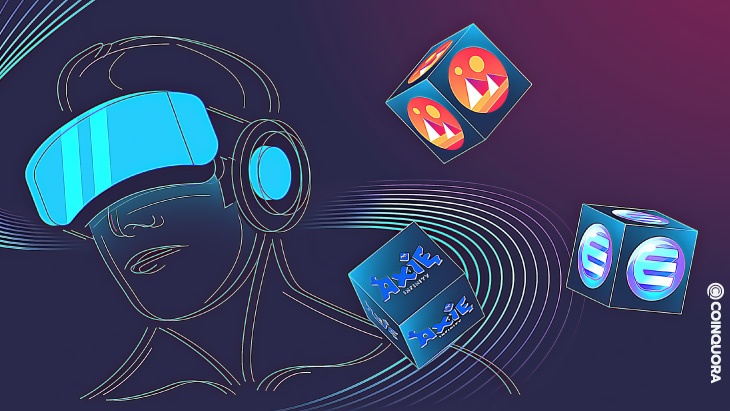First Look into the Metaverse – Same World, Different Reality
Since the inception of the internet, humanity has been trying so hard to get away from reality. Every new technology comes another means to submerge into cyberspace, temporarily freeing from corporeal attachments. As the metaverse lurks on the horizon of existence, the line between real life and the virtual world seems to blur each day.
You can call metaverse the ultimate form of virtual reality. If you’ve seen any of the Black Mirror series, it’s like that but way beyond. It’s actually in the name where “meta” means beyond and “verse” short for the universe.
In their vision, tech giants like Facebook and Epic Games (Fortnite) see the metaverse as a replica of the real world. Whatever exists in our reality will make its way to the alternative – almost like a parallel universe.
Compared to what corporations have in mind, the idea of the metaverse is still in its primitive stage. There are so many implications to its actualization; ones that would affect even the lives of those who choose not to participate.
Does metaverse seem like a good idea? Let’s take a deeper look at this otherworldly concept and what it means for the world we know.
The History of Escape
One of the early forms of alternative reality began with Six Degrees. It was the first-ever social media platform that ended up earning more than $125 million. Users could create profile pages and connect with others through private messages. This was when people first dipped in the anonymity sauce and loved it.
It only escalated from there. When MySpace took the throne in 2003, our addiction to the alter ego started to show. MySpace offered a wider range of profile customization on top of friends making and messaging options. People quickly realized they could become anyone they wanted and with whomever they chose.
Our journey for escape continued through cinematics and video games. Famous titles like the Sims, Second Life, and Roblox are some of the first attempts at metaverse. They eventually evolved into augmented reality (AR) apps and then virtual reality (VR), which is the closest thing we now have to a digitized world.
What is the Metaverse?
The metaverse is an ambitious concept. In its final form, we’d be looking at a digital representation of all real-world aspects, such as economy and environment. Users would fully immerse in a virtual lifestyle and be able to do things they normally never could in real life. We don’t need any subtlety to tell you what some of those things may be.
There are many branches to the current stage of the metaverse, including those with singular purposes, such as cryptocurrency and NFTs trading. Think Axie Infinity or Entropia Universe. If they do expand to their metaverses in the future, there would likely be more competition within the category.
That said, the metaverse would be defined by two main types of atmospheres – economy-driven and sandbox lifestyle. The former will sustain a monetary environment while the latter caters to a virtual world free of limitations.
In a sandbox metaverse, we could meet friends and other people at any location in the world. Mundane tasks in the real world would become much more convenient in a metaverse. Things like trying on new clothes or test driving a car are easily done at the comfort of your home (or a futuristic VR chamber we might have by then.)
Facebook has already announced its making of a metaverse. We unironically believe that it’s one of the most culturally appropriate companies to take this type of initiative. Let’s face it, social media has started this whole thing so it might as well finish it.
The project is reportedly worth billions of dollars and will mechanically revolve around the Oculus technology. It will feature a sandbox-style world along with all social utilities, including business meetings, concerts, and shopping. While the hype is real, Facebook has said it may take 10 to 15 years to even begin seeing viability.
The Problems with Metaverse
The concept of metaverse seems like a technological breakthrough, but it does carry some inherent issues. We believe there are two main concerns: decentralization and economy.
- Decentralization. For a true metaverse to work, it cannot run on central servers. Participation would mean contributing your computing resources, similar to crypto mining. Nobody would want to be moderated in their world. Facebook isn’t exactly known for its unyielding commitment to user privacy, so if it decides to centralize its metaverse, we could only imagine the consequences.
- Economy. Metaverse economies would likely depend on cryptocurrency, including those in a sandbox environment. This could raise the demand for crypto to the point of overdrive. We would need to come up with ways to sustain such heavy loads on the networks. That also leads to excessive energy consumption and, in turn, affects the metaverses themselves. Finding the balance between these factors would be extremely difficult, at least with the technology we have now.
Closing Thoughts
Life was much simpler when Windows 95 was the coolest thing you owned. Now, we commit hours of our lives to the internet without even thinking about it. Even our money has become just numbers on the screen.
As long as we continue to advance our technology, metaverse will continue to evolve. Every step toward its creation brings us that much further from reality. Or is it closer to a better one? Where would you be in the metaverse?











